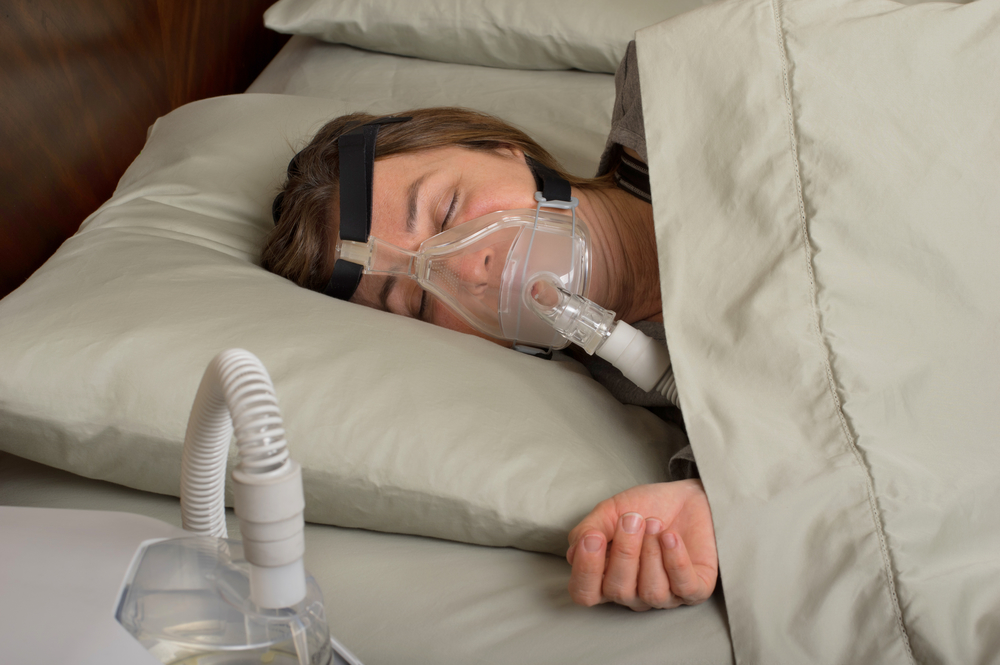The Health Risks of Untreated Sleep Apnea
 Sleep apnea is a sleeping disorder in which the individual frequently stops breathing in their sleep. Each instance will typically only last for a second or two, but with repetition and over time, those few seconds can lead to serious health problems. That is why it’s vital to get treatment for your sleep apnea as soon as possible. Be sure to consult your physician, and visit one of our locations to purchase a CPAP machine and associated supplies. Here’s a look at some of the health risks of leaving your sleep apnea untreated.
Sleep apnea is a sleeping disorder in which the individual frequently stops breathing in their sleep. Each instance will typically only last for a second or two, but with repetition and over time, those few seconds can lead to serious health problems. That is why it’s vital to get treatment for your sleep apnea as soon as possible. Be sure to consult your physician, and visit one of our locations to purchase a CPAP machine and associated supplies. Here’s a look at some of the health risks of leaving your sleep apnea untreated.
Poor Everyday Performance
Though you may not be aware of your sleep apnea, it can impact the quality of your sleep, leaving you groggy and with a reduced ability to focus during the day. This can lead to reduced performance in everyday activities, including school studies, job performance, athletics, and even driving, which increases your risk of being in a car accident.
While one or two days of groggy performance may not have long-lasting impacts on your life, persistent performance problems can cause serious problems in your life, including job loss and a negative impact on your relationships.
Headaches
Poor quality of sleep can also cause recurring and persistent headaches, further impacting your ability to perform and your overall quality of life. These headaches can exacerbate problems related to reduced performance in your day-to-day activities.
Depression
Sleep deprivation (whether caused by sleep apnea or something else) has also been shown to impact your mental health. Those with sleep apnea are at a higher risk of developing feelings of depression. If you have sleep apnea and you’ve developed depression, it’s important to seek treatment for both your mental health, as well as for your sleep apnea, as that may be the root cause of your mental health issues.
Worsening of ADHD
Anyone with untreated sleep apnea is going to have a more difficult time focusing on tasks throughout the day (part of those performance issues we’ve mentioned). But if you have ADHD, this problem can be significantly worse. Untreated sleep apnea can make your ADHD much more difficult to manage, due to your lack of healthy, restful sleep. Again, be sure that you are receiving treatment for both your ADHD and your sleep apnea in these cases.
High Blood Pressure
In those brief moments that you stop breathing while you sleep, the oxygen levels in your blood drop. This can strain your cardiovascular system, as it must work harder to pump sufficient oxygen to your body, and puts you at a higher risk of hypertension, or high blood pressure. And, as you likely know, high blood pressure can lead to a host of other potential health problems, some of which are included below.
Heart Trouble
Sleep apnea’s effect on your health goes far beyond making you groggy. Untreated sleep apnea puts you at an increased risk of heart problems, including irregular heartbeat, heart attacks, and even heart failure. This is largely related to your increased risk for high blood pressure, and the added strain on your cardiovascular system.
Stroke
Additionally, sleep apnea can put you at an increased risk of experiencing a stroke. As you can imagine, briefly holding your breath won’t have major impacts on your brain. But, when you do this many times a night, every night, your brain does not receive sufficient oxygen. As with the heart troubles mentioned above, it is also related to increased blood pressure as a result of sleep apnea. Higher blood pressure and reduced oxygen levels in the brain can put you at a higher risk of experiencing a stroke, even if you’ve never had one before.
Diabetes
Individuals with sleep apnea are also at a higher risk of developing Type II diabetes. Sleep apnea alters glucose metabolism and promotes insulin resistance, which can lead to the development of diabetes in individuals. This can occur regardless of other risk factors, such as lifestyle and weight.
If you suffer from sleep apnea, the best way to treat it is through the use of a CPAP machine. This device provides positive air pressure to your airway, helping to keep it open so that you continue breathing throughout the night. If you believe you have sleep apnea, speak to your doctor, and he or she will likely prescribe a CPAP machine for treatment.
You can find CPAP machines, accessories, cleaning supplies, and other associated products in all of our Texas medical supply stores. It’s important that you seek treatment for your sleep apnea as soon as possible to avoid these other health complications developing in the future.